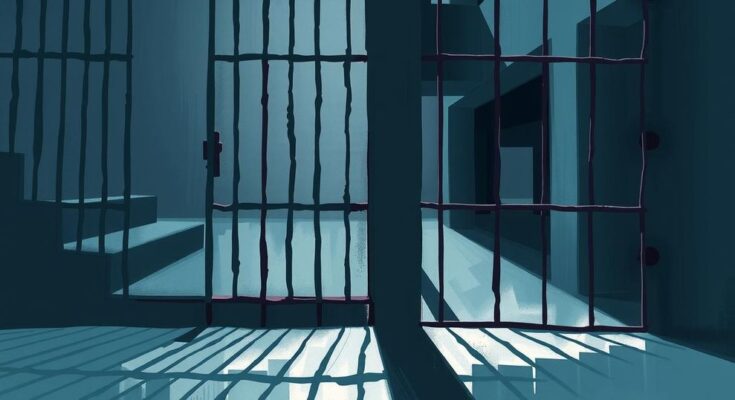Juanita Goebertus of Human Rights Watch outlines concerning prison conditions in El Salvador, particularly at CECOT. The prison, overcrowded and lacking individualized treatment, denies detainees communication and due process rights. This situation occurs within a state of emergency permitting mass detentions. Testimonies reveal widespread abuse and health neglect, underscoring urgent humanitarian concerns.
In a declaration made for the J.G.G. v. Trump case, Juanita Goebertus, Director of the Americas Division of Human Rights Watch, outlines disturbing prison conditions in El Salvador. Goebertus, an experienced legal professional with degrees from prestigious institutions, acknowledges the absence of individualized treatment for detainees at the overcrowded Center for Terrorism Confinement (CECOT). The prison, initially stated to accommodate 20,000 individuals, had its capacity doubled to 40,000, raising significant concerns about adherence to UN treatment standards.
Goebertus highlights that individuals at CECOT are cut off from communication with family and lawyers, only appearing in court via online group hearings. The Salvadoran government labels detainees as “terrorists” and claims they “will never leave,” with no known cases of release. Human Rights Watch has criticized the government’s restriction on access to CECOT for human rights groups, allowing visits solely under strict control. During rare journalist accesses, it was revealed that prisoners may only leave their cells for limited time while some remain in harsh solitary confinement.
Despite potential advancements in technology at CECOT, the mistreatment of detainees aligns with the issues observed in other Salvadoran prisons, where torture, poor treatment, and severe violations of due process continue to manifest. The current prison crisis can be placed within the context of a three-year state of emergency in El Salvador, resulting in the detention of approximately 85,000 individuals, amounting to 1.4% of the national population.
Information regarding prison conditions is limited, yet Human Rights Watch estimates that around 109,000 individuals are imprisoned in facilities built for just 70,000, with over 350 recorded deaths among detainees since the state of emergency began. Reports of abuse extend to children, with more than 3,300 minors detained, many of whom have no affiliation with gangs. Legislative actions are permitting the transfer of these children to adult facilities, heightening the risk of maltreatment.
Human Rights Watch has collected testimonies from over 30 individuals, including children and their relatives, detailing grotesque mistreatment endured while in custody. One individual recounted severe beatings and confinement with overcrowded conditions leading to suffocating experiences. Another detailed a detainment scenario overshadowed by extreme overcrowding and repressive guards utilizing methods of torture.
The organization secured evidence of serious health issues faced by detainees, compounded by unsanitary environments and inadequate medical care. Out of the estimated 350 prisoner deaths, notable cases exhibited bruising consistent with torture. Repeated failures by officials to provide critical medication and questionable burial practices have exposed practices amounting to enforced disappearances.
Furthermore, prior investigations have revealed abusive conditions for Salvadoran nationals deported from the United States, with detainees recounting severe mistreatment upon their arrival in prison. Human Rights Watch’s work underscores the abysmal conditions that affect numerous lives and the urgent need for reform in El Salvador’s penal systems.
This declaration sheds light on the dire human rights situation in El Salvador’s prison systems, particularly under the current state of emergency. The alarming increase in detainee numbers, coupled with systemic abuse and neglect, necessitates immediate action. It is crucial for authorities and international organizations to address these violations and advocate for the fair treatment of all individuals, especially vulnerable populations like children.
Original Source: www.hrw.org




